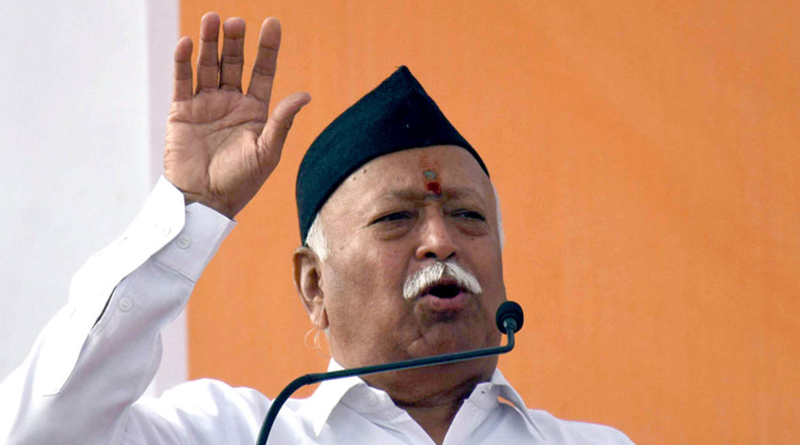RSS chief Mohan Bhagwat has made headlines by saying divorce is commoner in educated and affluent families “because with education and affluence comes arrogance, as a result of which families fall apart.” In the ancient days that Bhagwat reveres, India had affluent and educated men. It did not have affluent, educated women. They were denied equal inheritance rights and education, and kept at the complete mercy of male masters. Social customs meant women could not stand independently on their two feet, so divorce was not an option.
Education makes people uppity and demand rights, and this outrages those with power. In the era of US slavery, laws made it a crime to educate slaves, for education might give the blighters notions of freedom or equality. In British India, Macaulay and other grandees in London sought to create a cadre of educated Indians to help run the colony. But that idea was hated by the British stationed in India, who loved illiterate peasants (that posed no threat) but hated educated Indians (who were uppity enough to talk of independence).
Ancient Hinduism had no formal divorce procedures. But women could be thrown out by their husbands even on the most outrageous grounds or false rumours (ask Sita).
Bhagwat should celebrate the fact that such terrible gender inequality is now forbidden by the Indian Constitution. This declares there can be no discrimination on the grounds of religion, caste, race, sex, or place of birth. Sadly, all ancient traditions — including Hinduism, Islam, Christianity and other faiths —practised all these forms of discrimination. The grey eminences that formulated the Constitution were educated, affluent and arrogant enough to ban the traditional discriminations of all religions.
Hindu tradition gave males power over property, marriage, occupation and all family matters. Marriages were financial deals between parents entailing dowry payments. Child marriage was standard. Katherine Mayo’s ‘Mother India’ lists examples of six-year-old girls hospitalised with crushed pelvises after forced sex with older husbands, who nevertheless wanted their wives back to meet their sexual needs.
Sati condemned women to be burned on the funeral pyres of their late husbands. Men were not expected to immolate themselves on their late wives’ pyres.
Fortunately, women are getting educated and affluent, and are no longer helpless pawns. They can think and act for themselves, including shedding undesirable husbands. Rising divorces are a sign that male tyranny is finally getting contested and punished. This is justice, not arrogance.
A Family Health Survey revealed that one-third of women above 15 years had suffered domestic violence, with broken bones, teeth and eye injuries. Yet only 14% of the sufferers sought to stop it. The good news — Bhagwat may disagree — is that women who went to school are more likely to report violence and will hopefully dump their torturers.
Every faith and tradition has a damnable record of oppressing women. Islam requires a raped woman to produce four witnesses, making it almost impossible for her to complain. Instant triple talaq is an outrage. Many Islamic countries force women to stay home and never move out unless accompanied by a male relative. In Iran, women cannot watch a football match because that will allow them to see exposed men’s legs, and that, apparently, will destroy Islamic society.
A Human Rights report in 2010 in Pakistan says almost 800 women were victims of “honour killings”. Tradition empowered village elders to order the rape, murder or barter of women for love affairs involving them or family members. India is not much better — honour killings continue here too.
Christianity discriminated against women too. Through most of history, Christian countries gave males a monopoly of property and other rights. St Thomas Aquinas, a great philosopher, declared that rape was less sinful than masturbation because rape contained the possibility of procreation, a noble Christian cause, while masturbation did not.
Roman Christian Emperor Constantine defined elopement as rape. If the female had consented, she was burned at the stake along with her male friend. If she had not consented, she was still considered an accomplice on the grounds that she could have saved herself by screaming for help.
Another terrible Christian tradition declared old widows to be devil-worshippers and witches, and so burned alive. The accusations were often brought by greedy male relatives wanting to seize the women’s property.
Fortunately, Europeans have now become affluent and educated enough to become what Bhagwat calls “arrogant”. They denounce ancient traditions as terrible crimes.
Bhagwat is educated and reasonably affluent. Let’s hope this makes him arrogant enough to denounce the many Hindu customs that mistreated women shamefully in the name of tradition.


